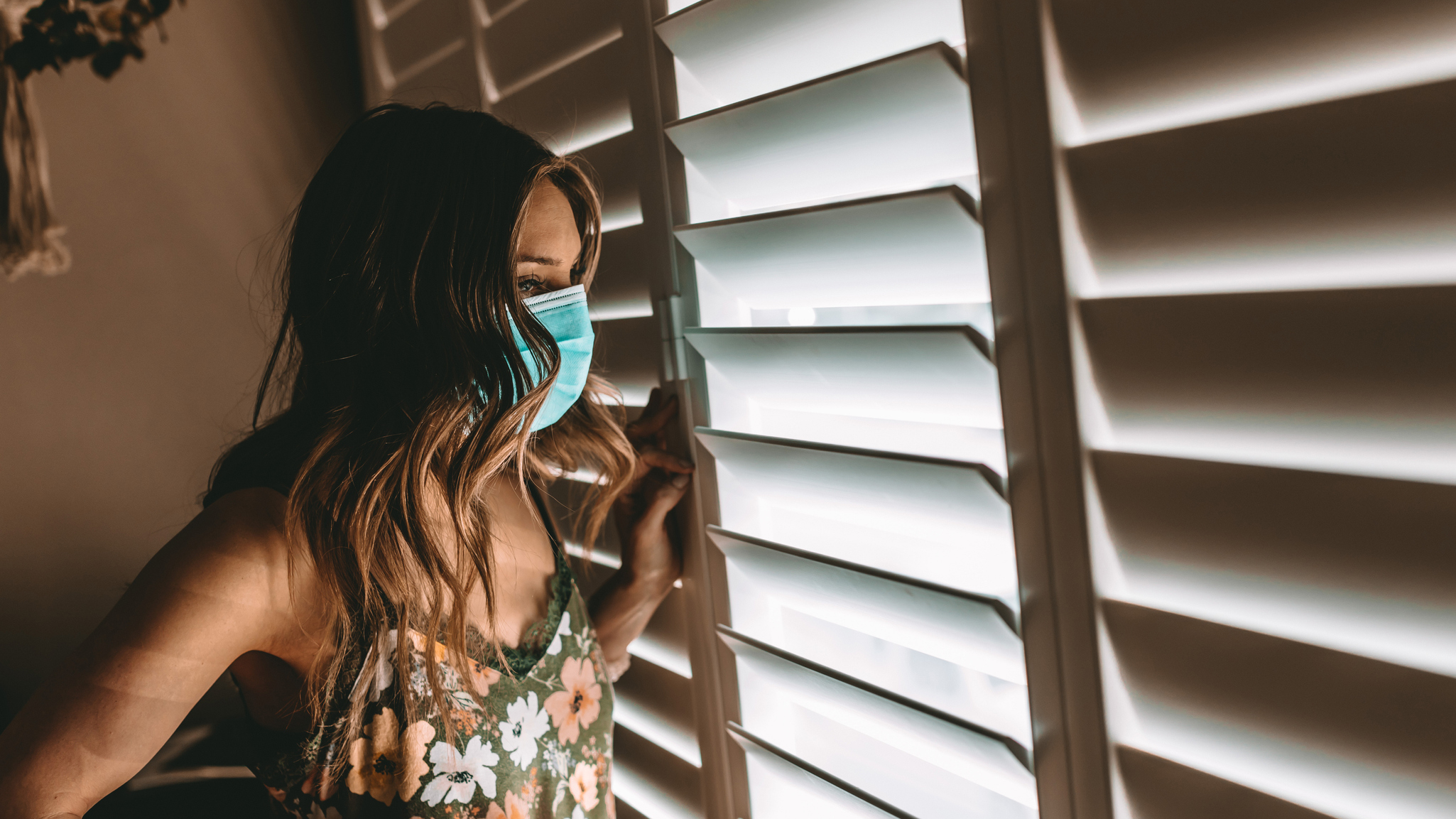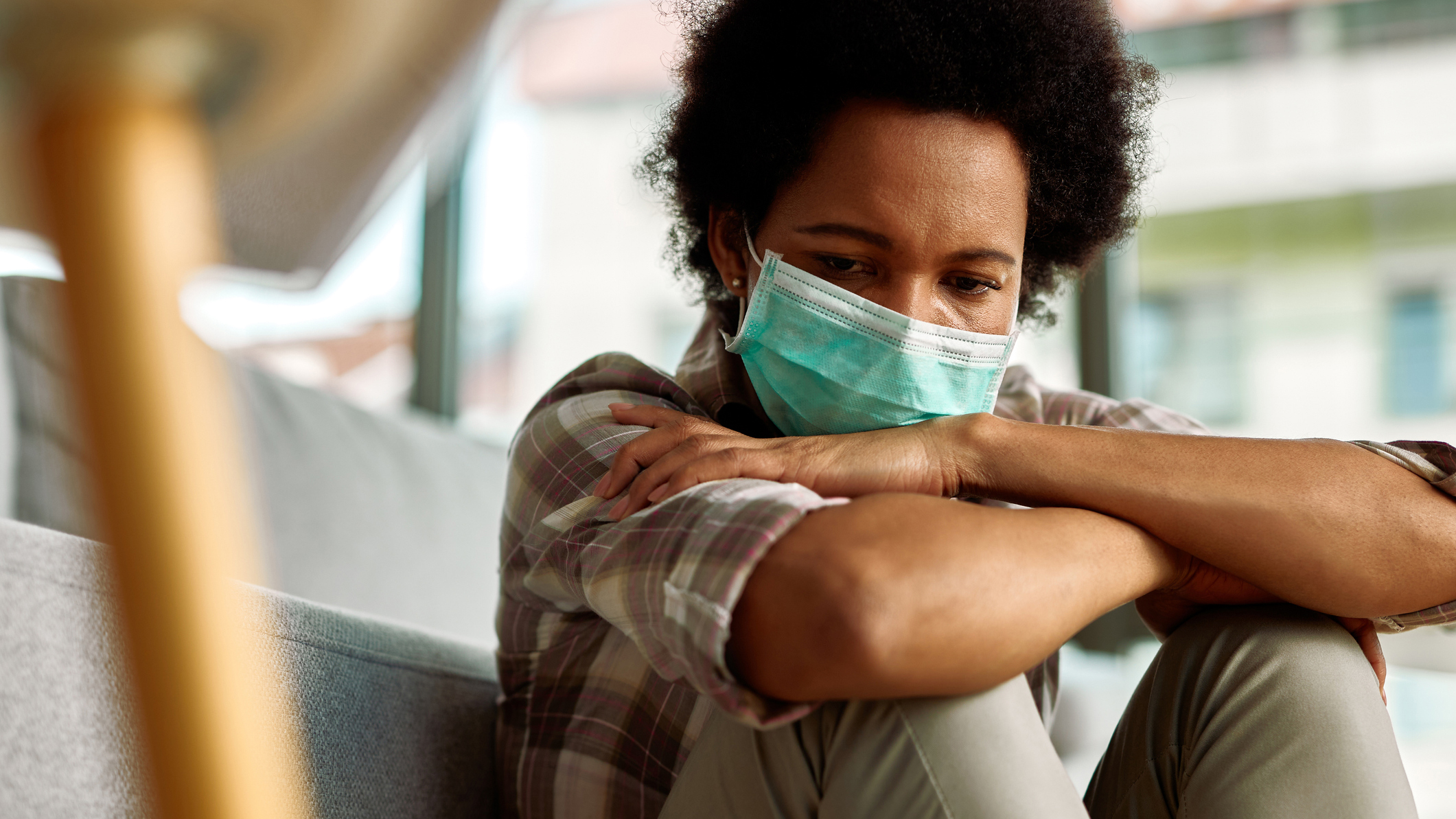Lots of people feel anxious about going out after lockdown, according to research
"Home separation anxiety" is a thing. Here's why some of us are finding it tough to shake off lockdown mental health woes


Start your week with achievable workout ideas, health tips and wellbeing advice in your inbox.
You are now subscribed
Your newsletter sign-up was successful
Most of us have spent the last year being told to be afraid when gathering in public, and to take extra precautions due to the threat of the coronavirus pandemic. Masks have become commonplace (and often a legal requirement) in indoor public areas such as shops, public transport and workplaces. For most of the last year, the only place we've felt is safe is in our homes, with many of us spending more time there than ever thanks to offices pivoting to a safer work-from-home model.
Is it any wonder we feel much more nervous about going out than we used to? Now the restrictions are beginning to ease due to the vaccine programmes rolling out, we're experiencing even more anxiety around leaving our homes than ever before.
After a year of drumming new habits into ourselves, it's hard to just flick the switch and revert back to the way things were. This "Home Separation Anxiety" is becoming a recognised problem, according to research by UK homeware brand Hotpoint.
Behavioural Psychologist Jo Hemmings comments: “Unlike Separation Anxiety Disorder, where adults experience high levels of anxiety when they’re away from loved ones – Home Separation Anxiety is related to the nervousness around being away from home comforts. In other words, we’re seeing a rise of FOGO – a fear of going out – now that we’re edging closer to normality.”
The research by Hotpoint found more than two thirds (67 per cent) of the people they polled – adults who’ve worked from home – feel anxious at just the thought of being away from their home comforts once society resumes, with women feeling more nervous than men (71 per cent vs 60 per cent).

Hemmings says over lockdown, people "have cultivated a sense of ‘homeliness" and now we’re going to be spending less time in our homes, we'll be "compromising that feeling of being safe and secure.”
Lockdown anxiety is one of the less talked-about parts of the pandemic. Anxiety occurs when your body's "flight or fight" response is triggered too often, leading to overstimulation. When we've behaving in a way which reinforces the idea shared surfaces and public gatherings could be very dangerous, it's tough to suddenly tell your brain it's all ok.
Start your week with achievable workout ideas, health tips and wellbeing advice in your inbox.
There are some treatments to anxiety, although none of them promise overnight quick fixes. Regular mindfulness practice such as meditation can help, as can using calming scents like lavender through one of our best diffusers for essential oils. CBD or cannabinoid oil has shown promise as an anxiety treatment, although no studies have come to a firm conclusion here.
Cognitive behavioural therapy, practiced either on your own or with a professional, has also been found to be useful in teaching yourself to think in new ways that doesn't trigger your body's hormonal "fight or flight" response.
Matt Evans is an experienced health and fitness journalist and is currently Fitness and Wellbeing Editor at TechRadar, covering all things exercise and nutrition on Fit&Well's tech-focused sister site. Matt originally discovered exercise through martial arts: he holds a black belt in Karate and remains a keen runner, gym-goer, and infrequent yogi. His top fitness tip? Stretch.
